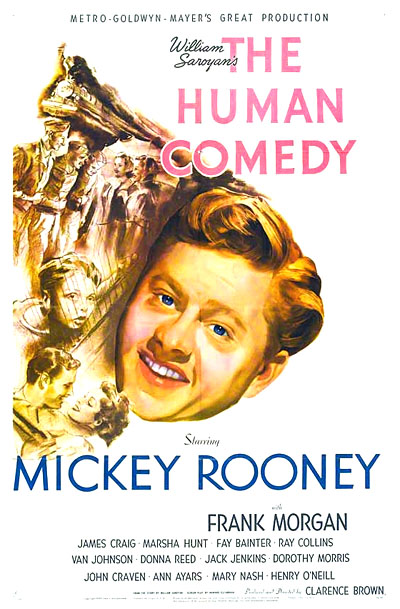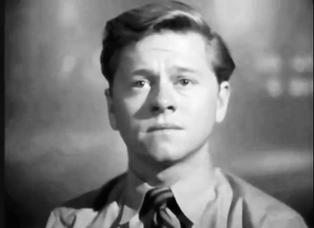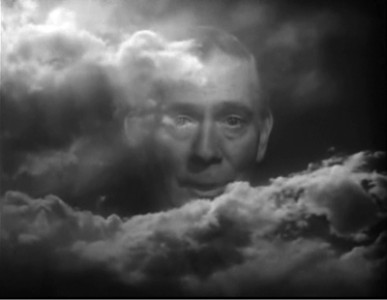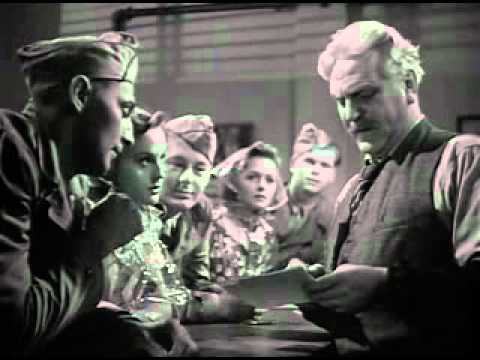The 1934 best picture nominee, The Barretts of Wimpole Street, takes place largely in one room.
That room is a bedroom located in a mansion that sits on Wimpole Street in London. The room is occupied by Elizabeth (Norma Shearer), a sickly woman who has spent years in bed and who is barely able to walk. She is the eldest of 11 siblings and all of them live in the house together, under the watchful eye of their tyrannical father, Edward (Charles Laughton). Edward has forbidden any of his children from ever leaving home. None of them are to get married. In fact, none of them are to have even a relationship. Even when he hears that a trip to Italy could actually improve Elizabeth’s health, he sternly forbids her from leaving. Edward is obsessed with sin. As he explains it, he was once a sinner himself. In fact, he was such a sinner that he sometimes lost control of himself. Now that he’s a father and a widower, Edward deals with his less savory impulses through constant prayer and he’s determined to never allow his children to fall into sin as well.
Despite her father’s attempts to keep her isolated from the outisde world, Elizabeth has managed to find an escape. She’s a poet and her words have won her admirers from around world. One of those admirers is another poet, a young man named Robert (Fredric March), who frequently writes her letters about his love of her work. One day, in the middle of a snowfall, Robert shows up at the house on Wimpole Street and requests to see Elizabeth. Robert tells her that her poetry has not only inspired him but it has also caused him to fall in love with her. When Elizabeth explains that she is dying and cannot leave the bedroom, Robert says that she’s going to live forever. After Robert leaves, Elizabeth manages to stand and, for the first time in years, walks over to the window to watch as he departs.
Sounds like a perfect love story, right? Well, there’s a problem. Edward has absolutely no intention of allowing Elizabeth to leave the house, regardless of how much her health improves after her initial meeting with Robert. He is determined to keep her in that bedroom and, this being a pre-code film, it becomes obvious that there’s more to Edward’s behavior than just being an overprotective father. Though the dialogue may be euphemistic, Edward’s incestuous desires are plain to see. It’s there every time that he leers as his daughters while also saying that he’ll be sure to pray for their souls. It’s there in the film’s final moments, when Edward makes a request that’s so dark and cruel that it will take even a modern audience by surprise. Charles Laughton played a lot of villains over the course of his long career but Edward is perhaps the most monstrous.
As a film, The Barretts of Wimpole Street is undeniably stagy and it’s a bit overlong as well. Charles Laughton so dominates the film with menace that he threatens to overshadow not just March and Shearer but also Maureen O’Sullivan, who plays one of Elizabeth’s sisters. But no matter! I absolutely love The Barretts of Wimpole Street. The house is gorgeous, the plot is wonderfully melodramatic, and Shearer and March both have a wonderful chemistry. You can debate whether or not March and Shearer are credible as poets but, ultimately, what matters more is that they are totally believable as soul mates. From the minute they first meet, you simply buy them as a couple that is meant to be. Robert’s earnestness is perfectly matched with Elizabeth’s growing strength and it’s impossible not to cheer at least a little when Elizabeth first manages to walk down a staircase without collapsing.
Of course, as any student of literature should be aware, Robert is Robert Browning and Elizabeth is Elizabeth Barrett. In real life, Robert Browning did arrange a meeting with Elizabeth after having read her poetry and, as well, it’s been said that Elizabeth’s father did not approve of her relationship with Robert. It’s also apparently true that Edward actually did disinherit any of his children who married. As for the other details of Edward’s depiction in The Barretts of Wimpole Street, it’s unknown how close to the truth Laughton’s performance may have been.
The Barretts of Wimpole Street is a wonderful historical romance. It was Oscar-nominated for best picture, though it lost to a far different romance, It Happened One Night.




